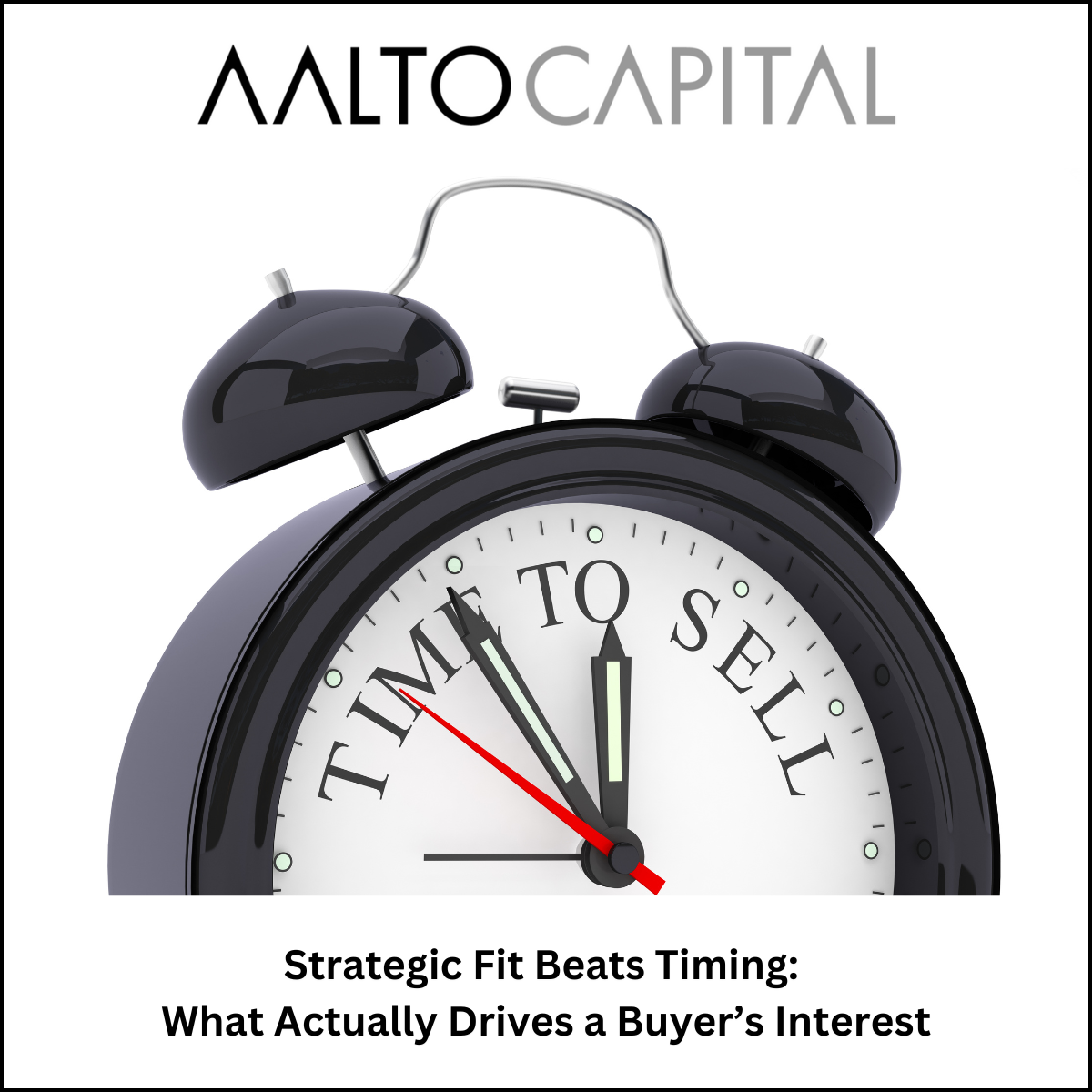Strategic Fit Beats Timing:
What Actually Drives a Buyer’s Interest

For many business owners, the question of whether it is the right time to sell tends to focus on the broader market. Interest rates remain high, public valuations have been mixed, and investor sentiment varies across sectors. In this context, hesitation is understandable.
In most mid-market transactions, however, timing is not dictated by market conditions alone. For institutional buyers, the decision to pursue an acquisition is often based on whether the target supports a current strategic priority. These may include market entry, bolt-on growth, product expansion, or operational consolidation. If a business meets that need, the buyer is more likely to move forward, even if the wider environment is not ideal.
This has become particularly relevant over the past 12 to 18 months. Many private equity firms and corporate acquirers already hold platform assets. They are now actively looking for complementary acquisitions that can be integrated efficiently. These buyers are not waiting for signals from the public markets. They are executing on defined strategies with committed capital and clear deployment mandates.
For founders, this shifts the emphasis. Instead of asking whether market conditions are favourable, the more useful question is whether your business solves a problem for potential buyers today. A company that fits a strategic roadmap is more likely to attract sustained interest than one positioned generically in search of valuation upside.
Of course, wider sentiment still plays a role in pricing and risk appetite, but strategic buyers are rarely passive. They prioritise fit, clarity, and execution. Founders who understand this dynamic and shape their process accordingly are more likely to generate serious engagement, regardless of what markets are doing.
In many cases, understanding why a buyer would act now is more valuable than waiting for a perfect external moment.